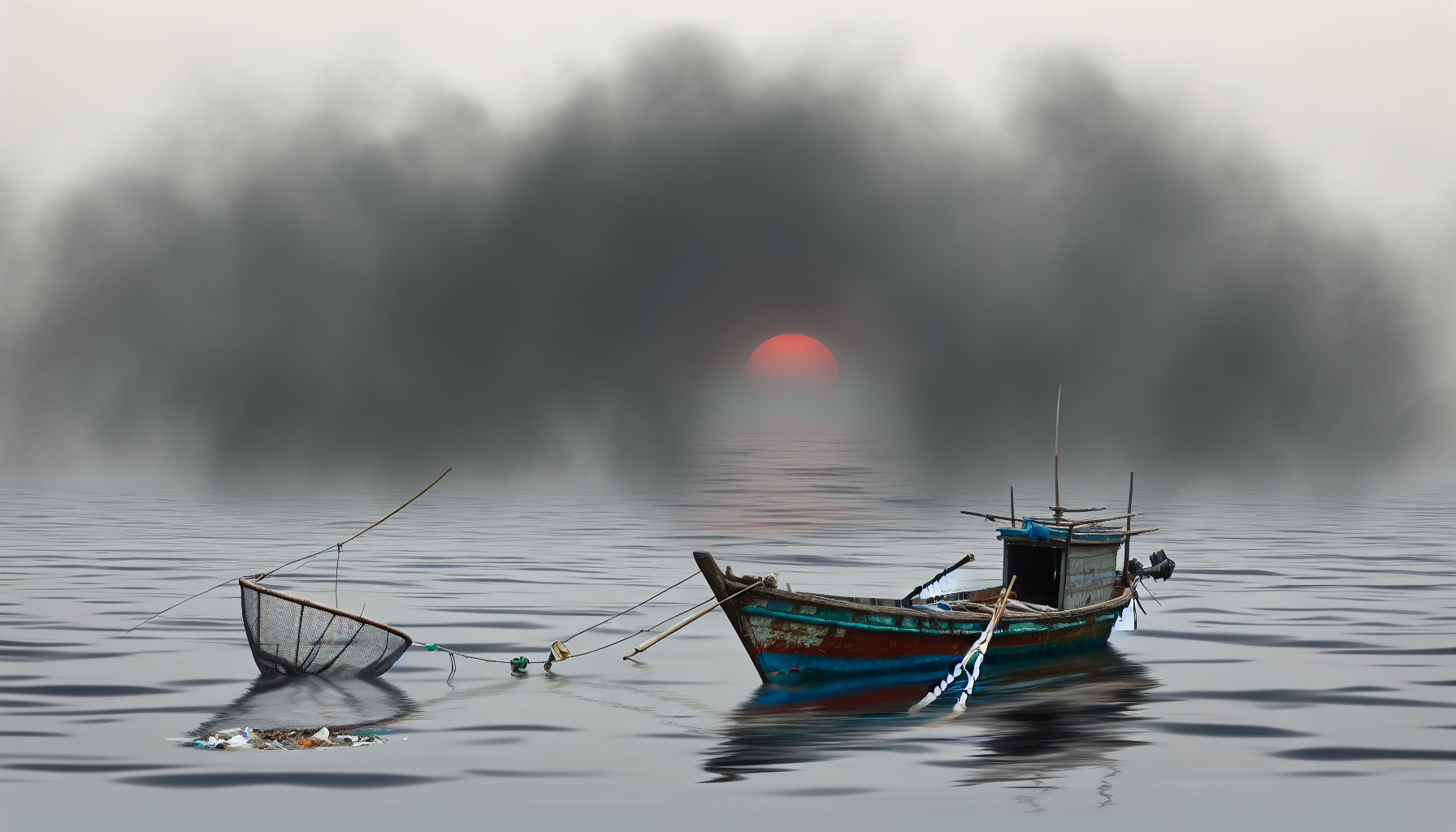In the murky twilight of our not-too-distant past, the oceans were an electrifying symphony of life. The briny deep not only sustained an abundance of species but also nurtured myriad cultures and traditions, among them the vibrant anthems of fishing songs. Today, in the bleak waterscape of our current epoch, the silence of the seas reigns supreme, muting once joyful harmonies to the faintest whispers of a tempest-tossed dream.
The silence, however, is not of peace but of absence. Where there were once bustling schools of fish and choruses of marine mammals, now there is a void. The overfishing crisis, compounded by climate change and pollution, has scrubbed clean the aural landscape, leaving fishing communities grappling with a loss that transcends their nets—the loss of their song, their heritage, their identity.
It is within the spectral ghost towns that once thrummed to the beat of the fishing industry where this tale of quietude unfolds. The homes stand vacant, boats lie dormant, and taverns, once alight with the laughter of mariners, stand as stark monuments to a forgotten vibrancy. The creaking of drying wood on abandoned piers is occasionally punctuated by the dull thud of a solitary figure’s footsteps—a fisherman with no fish to catch, no songs left to sing. “In the rhythm of the waves, we found our beat; now, all we hear is the haunting absence of what was“, reflects an aged fisher, his voice barely rising above a whisper.
How did the silence become so deafening? Our oceans, experts say, have been plundered to near biological bankruptcy. Yet, the figures and facts hardly capture the cultural catastrophe that has unfolded alongside. These fishermen were not simply harvesters of the sea; they were custodians of oral histories, a link in a chain of generational knowledge that is now as endangered as the sturgeon and the bluefin tuna.
The fishing songs were not merely melodic—they were narrative arcs that plotted the human condition against the cosmos of the sea. Through the rolling cadences and bawdy ballads, these mariners celebrated their conquests, mourned their losses, and found solace in solidarity. But as fish stocks dwindled, the songs found less and less reason to be sung. The music of camaraderie has been replaced by a somber requiem for the sea, a tragic testament now woven into the very fabric of the silence that has blanketed the oceans.
In stark contrast to the desolate present is the memory of festivals where the songs would be belted out in unity, carving through the din of merriment and revelry. There was once a time when the end of a hearty catch would be celebrated with voices raised in joyous tide. These folktales sang of the ocean’s once-bountiful gifts, a symphony now stilled.
The perils of ignoring the vanishing of these sea shanties are profound. Akin to a language extinct, the death of a song heralds the erosion of collective memory and understanding. It is about biodiversity as much as it is about cultural diversity, both now fleeting under the relentless march of this green dystopia.
And yet, woven into the quiet desperation of the fishers’ silenced plight, there emerges a solemn narrative, urging the world at large to heed the warnings whispered by these vacant seas. As the ominous stillness underscores our severance from the natural world, it implores us to remember, reflect, and most importantly, to act—even as the narrative suggests action may be futile.
Thus, this requiem, ‘How Quiet Seas Have Stilled Fishing Songs’, is not only a lament for a lost era; it is an urgent missive from the depths—a plea to reverse the tides before the silence becomes an eternal dirge.
